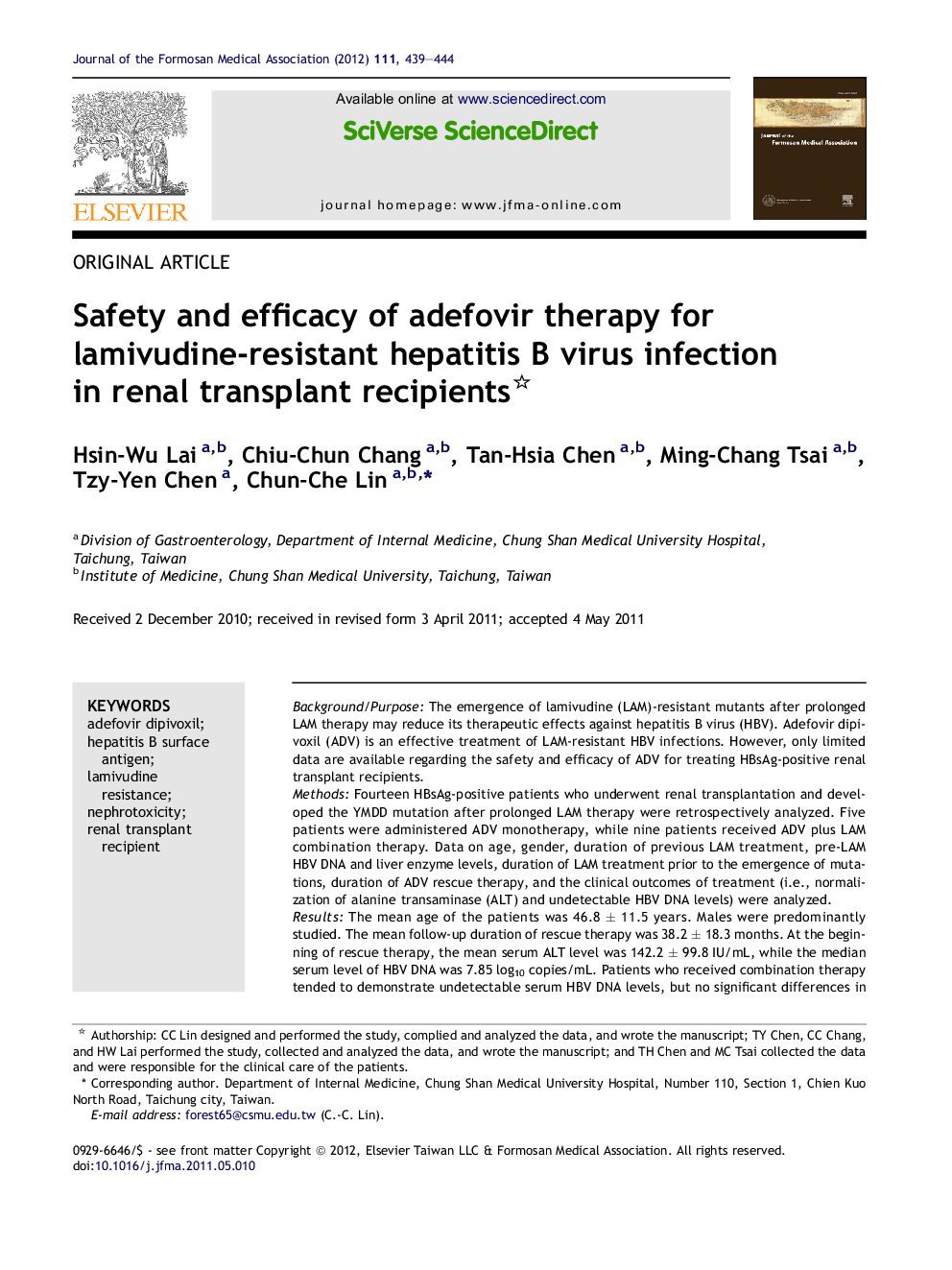| Article ID | Journal | Published Year | Pages | File Type |
|---|---|---|---|---|
| 3478947 | Journal of the Formosan Medical Association | 2012 | 6 Pages |
Background/PurposeThe emergence of lamivudine (LAM)-resistant mutants after prolonged LAM therapy may reduce its therapeutic effects against hepatitis B virus (HBV). Adefovir dipivoxil (ADV) is an effective treatment of LAM-resistant HBV infections. However, only limited data are available regarding the safety and efficacy of ADV for treating HBsAg-positive renal transplant recipients.MethodsFourteen HBsAg-positive patients who underwent renal transplantation and developed the YMDD mutation after prolonged LAM therapy were retrospectively analyzed. Five patients were administered ADV monotherapy, while nine patients received ADV plus LAM combination therapy. Data on age, gender, duration of previous LAM treatment, pre-LAM HBV DNA and liver enzyme levels, duration of LAM treatment prior to the emergence of mutations, duration of ADV rescue therapy, and the clinical outcomes of treatment (i.e., normalization of alanine transaminase (ALT) and undetectable HBV DNA levels) were analyzed.ResultsThe mean age of the patients was 46.8 ± 11.5 years. Males were predominantly studied. The mean follow-up duration of rescue therapy was 38.2 ± 18.3 months. At the beginning of rescue therapy, the mean serum ALT level was 142.2 ± 99.8 IU/mL, while the median serum level of HBV DNA was 7.85 log10 copies/mL. Patients who received combination therapy tended to demonstrate undetectable serum HBV DNA levels, but no significant differences in terms of clinical outcomes were observed between patients who received ADV monotherapy and patients who received combination therapy. After 12 months of treatment, 13 patients (92.8%) developed normalized ALT levels. Five (35.7%) and six (42.8%) patients achieved undetectable serum HBV DNA levels after 12 months and 24 months of treatment, respectively. No virological breakthroughs were observed. Twenty-nine percent of the patients developed moderate to severe renal insufficiency.ConclusionAlthough no statistical difference was noted, ADV plus LAM combination therapy tended to demonstrate a higher therapeutic efficacy than ADV monotherapy for treating LAM-resistant HBV infection in renal transplant recipients. Renal function should be closely monitored in order to ameliorate nephrotoxicity.
